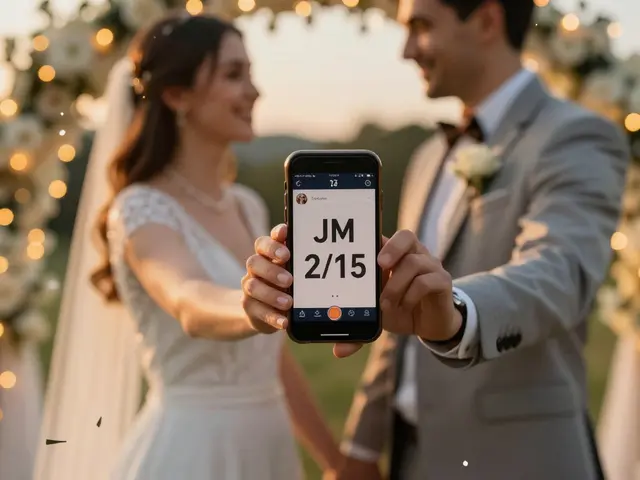
Not every meeting matters. But when it does-when you’re sitting across from a potential investor, a key partner, or someone who can change your trajectory-the difference between a forgettable chat and a game-changing encounter comes down to preparation, presence, and precision. An elite encounter isn’t about who you know. It’s about how you show up.
Know Your Purpose Before You Walk In
Too many people treat high-stakes meetings like casual coffee dates. They show up with a vague idea of what they want and hope something sticks. That’s not how elite encounters work. Every successful meeting has a clear, single purpose. Not three. Not five. One.Before you schedule the meeting, ask yourself: What is the one thing I need from this person? Is it a referral? A signature? An introduction? A shift in perception? Write it down. Then cut it down to one sentence. If you can’t say it in 10 seconds, you’re not ready.
When you’re clear on your goal, everything else falls into place. Your questions become sharper. Your timing becomes tighter. And the other person senses your focus-even if you never say it out loud.
Research Isn’t Optional-It’s the Foundation
You wouldn’t walk into a surgeon’s office without knowing what they specialize in. Yet people show up to meetings with people who’ve built companies, published books, or led teams of hundreds-and ask, “So, what do you do?”Elite encounters start with deep, specific research. Don’t just read their LinkedIn. Look at their recent interviews. Check their company’s press releases. Scan their social posts from the last six months. Find one detail no one else would notice-maybe they sponsored a local art show, or they spoke at a niche conference in Lisbon last year. Mention it. Not to flatter. To prove you paid attention.
One founder I know landed a $2M investment because he referenced a comment the investor made in a 2023 podcast about scaling teams without hiring. He didn’t ask for money. He asked for advice on that exact point. The investor called him three days later.
Control the Frame, Don’t Just Attend
Most people think meetings are about what’s said. The real game is about what’s not said-the space between words, the timing of pauses, the way you sit.Elite encounters are framed by the person who sets the tone. That’s you. Don’t wait for them to lead. Start with clarity: “I’ve got 25 minutes. I’d like to focus on how we can align our next steps. Is that okay?” That’s not pushy. It’s respectful. It’s professional.
Don’t let them derail you with small talk unless you want to. If they start talking about their vacation, you can say, “That sounds great-I’d love to hear more after we cover the key point I mentioned.” Then pivot back. People respect boundaries when they’re set calmly and confidently.

Listen More Than You Speak
This is the one thing everyone says but almost no one does. In elite encounters, the person who listens the most often walks away with the most.Here’s how: When they speak, don’t think about your next line. Think about what they’re not saying. Are they hesitant? Excited? Defensive? The pauses, the tone shifts, the way they avoid a topic-they tell you more than their words.
Use reflective listening. Don’t just nod. Say things like, “So what I’m hearing is you’re worried about timing more than budget.” Or, “You mentioned scalability earlier-was that the main hurdle for your last partner?”
People don’t remember what you said. They remember how you made them feel. And if they feel understood, they’ll want to help you-even if they didn’t plan to.
End With a Clear Next Step-Not a Vague “Let’s Stay in Touch”
The biggest mistake after a great meeting? Leaving without action.“Let’s stay in touch” is the death of opportunity. It sounds polite. It’s empty. Elite encounters end with a specific, time-bound next step. Not “I’ll send you something,” but “I’ll send you the pitch deck by Thursday at 5 PM, and I’ll follow up Friday to see if you have 15 minutes to walk through it.”
Even better: Agree on who does what and by when. “You’ll introduce me to your CFO by next Tuesday. I’ll send you the financial model by Monday.” Write it down. Say it out loud. Confirm it.
If they don’t commit, don’t push. Say, “No problem-I’ll circle back in two weeks if I haven’t heard from you.” Then do it. People remember follow-through more than charm.
Follow Up Like a Pro, Not Like a Beggar
Your follow-up email isn’t a plea. It’s a reinforcement.Don’t write: “Just checking in to see if you’re interested.” That’s weak.
Write: “Thanks again for your time yesterday. I’ve attached the updated financial model we discussed, with the projections you asked for. I’ll be in Paris next week and would welcome 10 minutes to walk through it if you’re free. No pressure-just thought it might help.”
Notice the difference? You’re offering value, not asking for a favor. You’re giving them an easy out. And you’re reminding them of the last conversation-not begging for attention.
Send it within 24 hours. Always. And if they don’t reply? Wait seven days. Then send one short note: “Just circling back on this. If now’s not the right time, I completely understand.” Then stop. Don’t chase.

It’s Not About Power-It’s About Alignment
The myth of the elite encounter is that it’s about impressing someone with your status, your title, your connections. It’s not. It’s about finding alignment.Some of the most powerful meetings I’ve seen were between a freelance designer and a startup founder with no funding. The designer didn’t have a big company. She had three case studies, a clear vision, and the ability to listen. The founder didn’t have cash-he had urgency and a prototype. They clicked because they both wanted the same thing: to build something real.
Elite encounters happen when two people recognize that their goals, values, and energy are in sync. You don’t need a fancy title. You need clarity, curiosity, and courage.
What to Avoid at All Costs
- Over-preparing scripts. Sound natural, not rehearsed.
- Interrupting. Even if you think you know what they’re going to say.
- Bringing up money too early. Unless they do.
- Comparing yourself to others. “My friend did this…” kills credibility.
- Being overly casual. No slang. No oversharing. No “Hey bro.”
- Waiting for the perfect moment. There is no perfect moment. There’s only now.
Final Thought: The Meeting Is Just the Start
An elite encounter doesn’t end when you shake hands. It begins the moment you leave. The real work happens in the follow-up, the consistency, the quiet persistence.One meeting won’t change your life. But five well-executed meetings over six months? That’s how careers shift. That’s how deals close. That’s how connections become collaborations.
You don’t need to be the loudest person in the room. You just need to be the most prepared. The most present. The most reliable.
That’s what makes an elite encounter.
What’s the most common mistake people make in high-stakes meetings?
The biggest mistake is showing up without a single, clear goal. People try to cover too much-networking, pitching, asking for advice, and seeking feedback-all at once. That scatters focus and makes the meeting feel unfocused. Elite encounters succeed because they’re laser-targeted: one purpose, one outcome, one next step.
How long should a successful elite encounter last?
Most elite encounters last between 20 and 45 minutes. Anything longer than an hour risks losing momentum. Anything shorter than 15 minutes rarely allows for depth. The sweet spot is 25-30 minutes: enough time to build rapport, explore alignment, and lock in next steps-without dragging on. Always propose a time limit upfront to show respect for their schedule.
Do I need to dress differently for an elite encounter?
Yes-but not in the way you think. You don’t need a suit unless the context demands it. What matters is intentionality. If you’re meeting a tech founder in a co-working space, clean jeans and a well-fitted shirt work. If you’re meeting a bank executive, a blazer adds credibility. The key isn’t luxury-it’s polish. No wrinkles. No visible stains. No distracting accessories. Your outfit should say, “I take this seriously,” without shouting.
What if the person is more senior than me? Should I be intimidated?
No. Seniority doesn’t equal superiority. People at the top are often the most open to fresh ideas-they’ve seen the same pitches a hundred times. Your value isn’t in your title. It’s in your perspective. Be confident, not deferential. Ask thoughtful questions. Share your insight. Most senior people respect clarity more than flattery. They’ve earned their position by being decisive, not by being impressed by status.
Can an elite encounter happen over email or Zoom?
Absolutely. The format doesn’t define the encounter-the intention does. Many high-value connections start with a well-crafted email that leads to a 15-minute Zoom call. But don’t mistake convenience for depth. A Zoom meeting still needs preparation: test your tech, choose a clean background, and treat it like an in-person meeting. The rules of focus, research, and follow-through apply equally. The only difference? You lose body language cues, so listen even harder.









